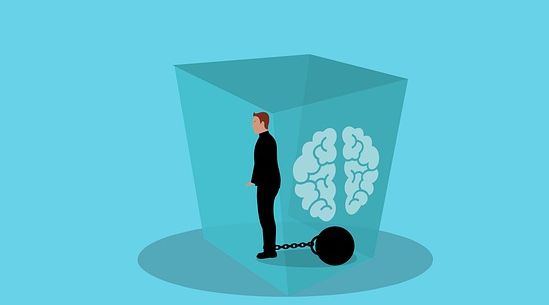COVID-19 infection is linked with an increased risk of mental health conditions, including anxiety, depression, sleep disorders and substance misuse. Research suggests that these conditions can remain up to one year after initial infection.
According to a report by Age UK, hidden mental crisis among the elderly have been noticed, indicating that it is important prioritise addressing psychiatric illness among COVID-19 patients.
Published by The BMJ on Wednesday, the US Study is the first comprehensive assessment of COVID-19's mental health manifestations one year after infection.
Researchers used relevant information from national healthcare databases of the US Department of Veterans Affairs to estimate the risks of poor mental health impact on people who recovered from the illness at least 30 days after testing positive. The duration of the study is between March 2020 and January 2021, with data from 153,848 people. Researchers matched the data of COVID-19 recovered people with two control groups having no history of COVID-19. A majority of participants included white men with an average age of 63 years.
The COVID-19 group was further divided into other sub-groups including those who were and were not admitted to the hospital during the acute phase of infection. Researchers also analysed key information on potentially influential factors such as age, race, sex, lifestyle and medical history.
As part of the study, researchers followed all three groups for one year to understand the risks associated with specified mental health outcomes such as anxiety, depression and stress disorders, sleep disorders, substance misuse, and neurocognitive decline.
When compared with the non-infected control group, people with COVID-19 showed a 60 percent higher risk of mental health illness or prescription at one year, equivalent to an additional 64 per 1,000 people.
Researchers also separately examined mental health disorders, finding that COVID-19 resulted in an additional 24 per 1,000 people with sleep disorders during the year, 15 per 1,000 with depressive disorders, 11 per 1,000 with neurocognitive decline and 4 per 1,000 with non-opioid substance use disorders.
Furthermore, mental health risks were highest among people admitted to the hospital during the initial as well as acute phase of the illness. The risks were also visible among those who were not admitted to the hospital. People with COVID-19 displayed higher mental health risks than those with seasonal influenza. Similar results were found in the case of hospital admissions. There was an increase in mental health disorders among those with COVID-19 admitted to the hospital compared to those in the hospital for any other reason.
According to Scott Weich, professor of mental health at the University of Sheffield, there is a clearer picture of the impact of mental health disorders of the COVID-19 pandemic. He explained that for the general population, COVID-19 lockdown caused transient distress (related to threat) and those who contracted the virus displayed increased symptoms of anxiety and depression for the first six months or so. The risk was greater during the first month of illness.
“Taking stock, it could be argued that much of the research concerned with the mental health impacts of Covid-19 represents more hindsight than insight,” he said.
He further called on prioritising the advancement of understanding the causes and impacts of mental illness. Further research is necessary to evaluate relevant treatments for psychiatric disorders generally.
Authors of the study stressed the report is observational and did not identify causes, adding that some misclassification bias may have occurred. "Because the study included mostly older white men, the results may not apply to other groups," they said.
SOURCE: The National News
 AR
AR UR
UR
